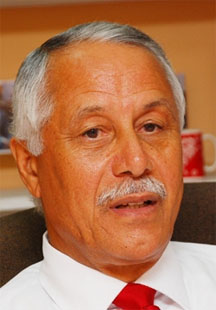(Barbados Nation) – Latest statistics from the Barbados Family Planning Association (BFPA) show a marked decline in Barbados’ birth rate – the second lowest in 30 years.

And the head of the BPFA is suggesting that it’s the middle and upper classes who are cutting back on procreation in the tough economic climate.
Executive director George Griffith says the difficult times don’t appear to be standing in the way of poorer Barbadian women having more children than they can really afford.
Statistics show the total number of births for 2010 was 3,366. That was 37 more than the 3,329 in 2007 which was the lowest number of births in three decades.
“Generally speaking, in Barbados the birth rate has fallen considerably . . . . Women are now having, on average, two children per family and in some instances it’s below that,” Griffith said.
Although the statistics do not indicate what socio-economic class the mothers come from, Griffith said the BFPA was noticing that those with higher levels of education and better income were “exercising greater control with respect to the number of and spacing of their children.
“Those households with higher levels of income and higher social status are not having as many children. The ones that are still having four, five, six and more children are the poorest of the poor: those who are not highly educated, those who do not have the skills necessary to command higher income levels, and those who are less likely to provide for [the children] physically and emotional. And that is what the concern for the country must be.”
However, Griffith made it clear that he was not trying to dictate to Barbadian women, regardless of their economic status, what the size of their families should be, in or out of an economic crisis.
“The family planning programme in Barbados is voluntary and at no time would the BFPA or any institution in Barbados, as far as I know, say to people how many children they should have,” he stressed.
The statistics for the 1980 to 2010 period also give a breakdown of babies delivered by teenagers and show a decline over the past four years.
In 2010, there were 468, which was 14 per cent of overall births in Barbados. The only other years in the 30-year period that the figures were lower were in 2004, 2005 and 2006 when the numbers were 450, 438 and 435 respectively.
Asked what could have been responsible for the decrease, Griffith said more young people had become mindful of the consequences of having children at too early an age.
Additionally, the veteran social worker said, they were more aware of the option of terminating an unwanted pregnancy, an option he insisted the BFPA stood by.
“We firmly believe that no woman should be forced to carry an unwanted pregnancy, no matter how they became pregnant,” Griffith said.
“There are a lot of people in Barbados who would still be very moralistic, but that same crowd would not seek to help a young woman with three or four children, whose education has been compromised, who you might pick up the Nation and see living in very deplorable housing conditions.”





